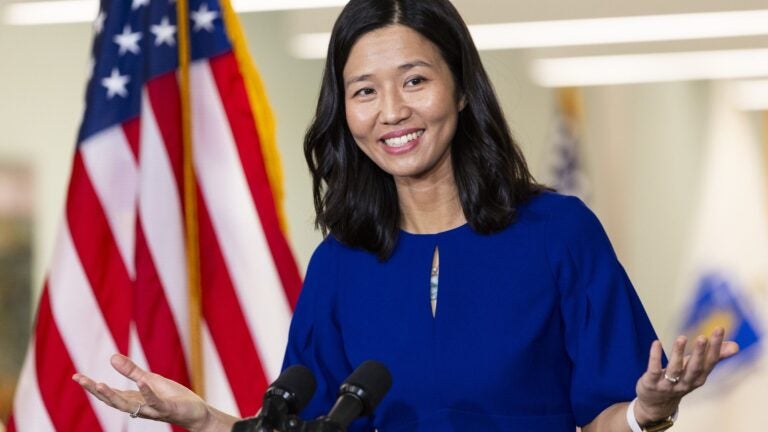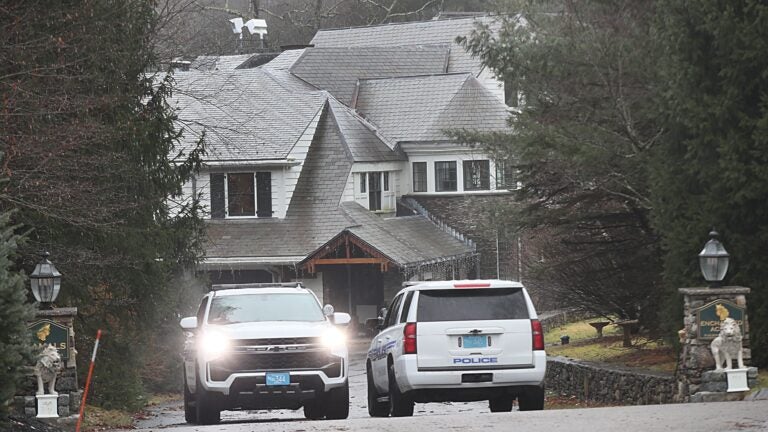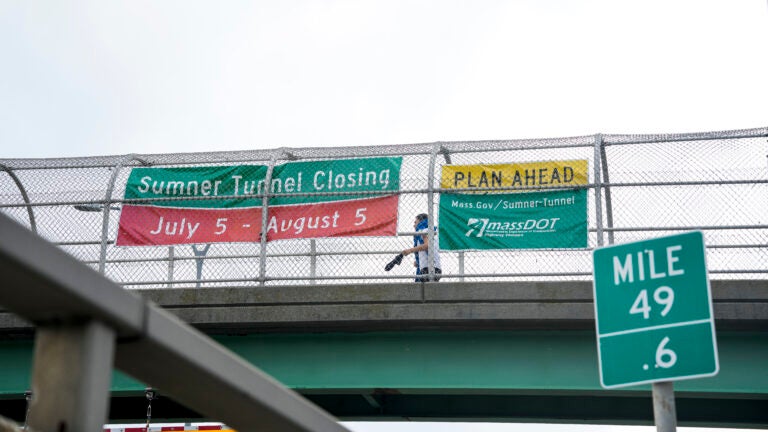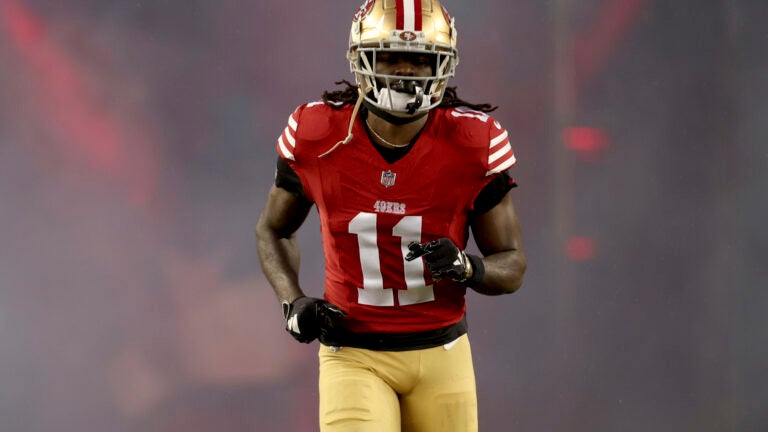Newsletter Signup
Stay up to date on all the latest news from Boston.com

After President Joe Biden announced his decision to withdraw from the 2024 race and endorsed Vice President Kamala Harris Sunday, Democrats around the country rushed to follow his lead and support Harris. Boston Mayor Michelle Wu was one of them.
She reiterated that endorsement Monday. But Wu also urged the party to forgo plans for a virtual roll call vote ahead of the Democratic National Convention next month, unless doing so would create legal issues that could prevent the Democratic ticket from getting onto state ballots.
DNC officials publicly planned to conduct a virtual vote before the convention, which is scheduled to kick off on Aug. 19 in Chicago. A virtual vote would be conducted by Aug. 7. The move was a response to concerns that Ohio’s ballot certification deadline would come before the DNC convention, thus preventing the Democratic nominee from appearing on Ohio’s ballot. Ohio lawmakers have since extended the deadline, but DNC leaders have voiced concern about relying on the GOP-controlled Ohio legislature to act in good faith.
Wu is one of Massachusetts’ DNC delegates. In an interview Monday morning with WBUR, she stressed that she has not done in-depth research on convention rules yet and wants to avoid any legal challenges that could prevent Democrats from appearing on ballots in November. But, she said, it is also important to conduct a vote in the most public way possible.
“I do think from the public perspective of understanding the process and having the chance to know what is happening, it’s always better to do it in a forum that people can watch and follow along, rather than what can be perceived as a quick, online early version of that conversation. That just simply won’t reach as many people,” Wu told “Radio Boston” host Tiziana Dearing.
The optics of the vote are important, Wu said on WBUR.
“If … we knew that it wouldn’t affect the ability for the Democratic ticket to be on the ballot in a major state, I think it’s better to do it in what will be perceived as out in the open, and at convention,” she added.
DNC officials said Sunday that they will “undertake a transparent and orderly process” to select a candidate capable of defeating Donald Trump.
The odds of Harris facing a significant challenge appear slim. Democratic heavyweights that are widely believed to have presidential ambitions of their own, like California Gov. Gavin Newsom and Michigan Gov. Gretchen Whitmer, vowed to support Harris. Former House Speaker Nancy Pelosi did not immediately endorse Harris Sunday, but did so Monday.
West Virginia Sen. Joe Manchin appeared to briefly explore the possibility of challenging Harris, but ultimately said he would not. Manchin, an Independent, did not endorse Harris and told multiple media outlets that he favors an open nominating process. Former President Barack Obama also did not explicitly endorse Harris, saying simply that he believes party leaders will “be able to create a process from which an outstanding nominee emerges.”
Many Democratic leaders in Massachusetts, including Gov. Maura Healey and Attorney General Andrea Campbell, endorsed Harris.
On Saturday, she headlined a fundraiser in Provincetown that generated an enthusiastic reception. Wu spoke at the event, which ended up doubling its fundraising goal of $1 million.
Wu praised Harris throughout her WBUR interview, but clarified that her endorsement was not equivalent to calling for a coronation without competition.
“I’m not saying everyone else should get out or we need to make sure that this happens without any other conversation. That is part of the democratic process and I already feel so sure of [Harris’] qualifications — and having that direct understanding of her role in what has already been a very strong partnership between Boston and D.C. — that that’s where I’m going to end up no matter who else jumps in the race,” Wu said.
Wu made history when she was the first woman and first person of color elected mayor of Boston. If she were to become president, Harris would become the first Black woman and the first person of South Asian descent to lead the country.
Wu warned of hateful attacks that could be targeted at Harris and misinformation that will be spread about her based on her ethnicity and gender, but said that a lot of people will be ready to “debunk” this and keep the focus on the stakes of the election.
When asked about the parallels, Wu said that she had actually sought advice from Harris in the past on withstanding racist and misogynistic criticism.
“For the individual people who are experiencing that, I guarantee you it’s not the first time in their career that they have been through that,” Wu said. “You live and breathe it as part of your daily existence.”
Stay up to date on all the latest news from Boston.com





Stay up to date with everything Boston. Receive the latest news and breaking updates, straight from our newsroom to your inbox.
Conversation
This discussion has ended. Please join elsewhere on Boston.com